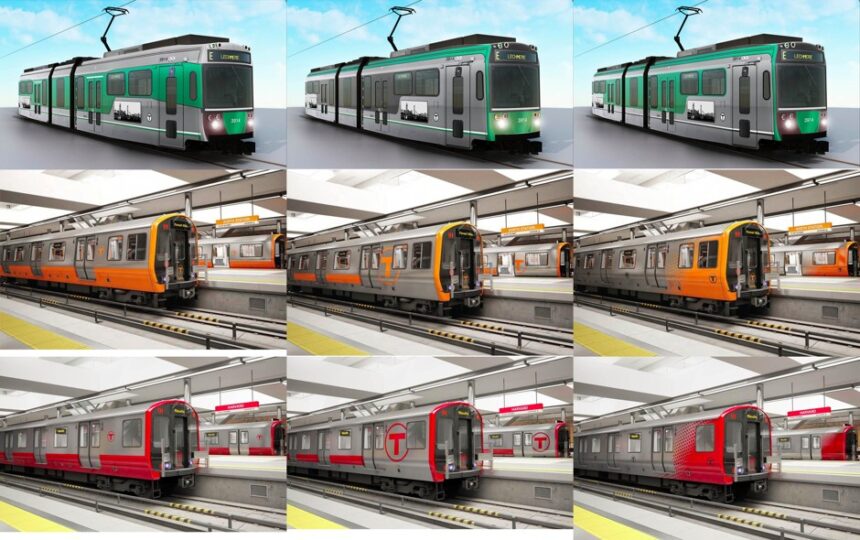The Massachusetts Bay Transportation Authority (MBTA) recently unveiled an update to its strategic plan, showcasing both recent achievements and ongoing projects set to reshape public transit in the Greater Boston area. This comprehensive update, presented during the October 2024 MBTA Board of Directors meeting, outlines completed initiatives, new goals, and financial strides aimed at enhancing user experience, boosting operational efficiency, and laying the foundation for a more sustainable and accessible transit system for future generations.
Building a System for Future Generations
“We are laying the groundwork for a transit system that will serve future generations,” stated Phillip Eng, MBTA’s General Manager and CEO. “Community feedback is crucial in guiding our choices. Serving the public is at the core of our mission, and we’re eager to shape MBTA’s future with these improvements.”
The strategic update details progress across numerous areas, from station upgrades to enhanced accessibility, increased funding, and recruitment gains. This report emphasizes the MBTA’s commitment to establishing itself as a national leader in public transit innovation.
“We’re focused on meeting both present challenges and long-term goals for our transit services,” noted Lynsey Heffernan, MBTA’s Director of Policy and Strategic Planning.
Noteworthy Milestones
Among key achievements are the reopening of critical stations in Lynn, Ashland, and South Attleboro, providing essential access for riders in those areas. Other notable milestones include finalized agreements with 28 labor unions, surpassing annual hiring targets, and launching a bus operator training program that prioritizes ongoing professional development.
Enhancing Infrastructure and Accessibility
Significant progress on the Green Line has included fast-tracked accessibility upgrades on Branch D, converting four stations into fully accessible transit points in just two weekends—an accelerated schedule that highlights MBTA’s focus on efficiency while reducing rider disruptions.
Planned upgrades for the North Station drawbridge, aimed at increasing service reliability and frequency for North Boston commuters, along with the electrification of the Fairmount Commuter Rail line, represent critical steps toward a more sustainable transit system by reducing emissions and strengthening the environmental profile.
Prioritizing Fiscal Responsibility
The MBTA continues its commitment to fiscal prudence, reducing shuttle service costs by $70 million and reallocating these savings to high-priority needs that directly benefit users. Fleet performance has also improved, with Orange Line vehicles now surpassing 200,000 miles between breakdowns—well above contract expectations. New Red Line cars are also helping to modernize the fleet, aligning with MBTA’s goal to boost ridership.
Fare Accessibility and Ridership Growth
Commuter train ridership has risen by 25% since July 2023, linked to the rollout of the reduced fare program for eligible riders and the adoption of contactless payment options. Over 27,000 participants have enrolled in the fare reduction program, underscoring its positive impact on reducing disparities among transit users.
Additionally, the MBTA introduced 16 Fare Engagement Representatives on the Green Line to assist riders in paying fares through a supportive, educational approach—demonstrating a commitment to improving the user experience and making fare payment simpler and more inclusive.
Federal Funding and Strategic Projects
Since Phillip Eng’s leadership began in April 2023, the MBTA has secured over $616 million in federal grants. These funds support major projects like the North Station Bridge upgrade and the South Coast Rail project, aimed at enhancing connectivity between southeastern Massachusetts and Boston for thousands of daily commuters.
Strategic Investments for a Sustainable Future
The MBTA’s recently launched Capital Needs Assessment is a pivotal part of the strategic plan, guiding investment decisions to bridge infrastructure gaps. The Fairmount Line’s electrification stands as an example of these sustainability investments, offering a cleaner, more frequent transit service for daily riders.
Vision for a Modern, Inclusive Transit System
The strategic update underscores the MBTA’s dedication to developing an efficient, inclusive, and sustainable transit system for Greater Boston. By responding to rider needs, implementing ongoing improvements, and pursuing thoughtful investments, the MBTA aims to build a resilient transit network that serves the Commonwealth well into the future.
“We value the voices of the communities we serve. Listening to riders helps us make decisions that meet their needs,” emphasized Phillip Eng, highlighting the MBTA’s dedication to transparency and community input in its planning processes.
While challenges remain, the MBTA’s recent achievements signal a strong path toward a modernized, accessible, and environmentally responsible transit system. With continued investments, innovation, and engagement, the MBTA is on track to fulfill its vision of a transformative public transit network for Boston.
For further details, the full strategic update is available on the MBTA website, providing the public with insights into current efforts and upcoming plans.
Note: This article was originally written in French by Emmanuel Paul based on a statement in English from the MBTA. It was translated using translation software and edited by Emmanuel Paul. Quotations and extracts in this article may differ slightly from the original version.
To read the original article in French, please visit our French page below







